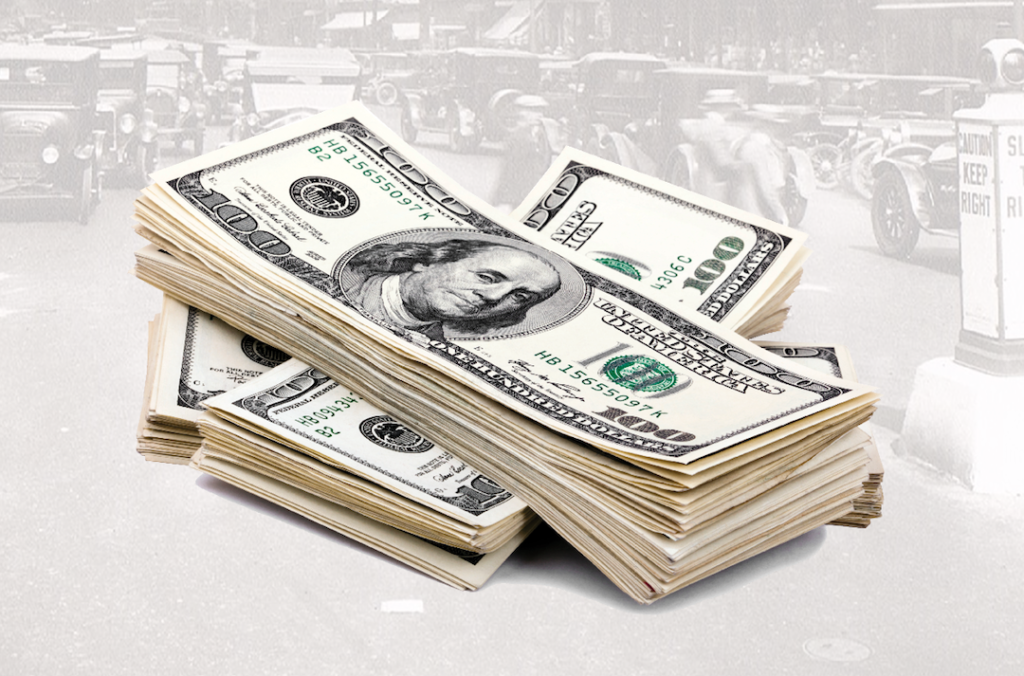Why Capitalism Reigns Supreme

It’s a phrase Americans have been uttering for a long time: “It’s a free country!”
In the United States, that phrase can refer to our collective freedom of speech, freedom of religion, freedom of assembly, freedom of the press, or a number of other rights. And in the U.S., in monetary terms, we live by yet another form of autonomy, summarized by a different phrase: “free-market economy.”
America, in fact, is the world’s foremost free-market economy. No other country with that type of system (or any other, for that matter) has a greater economic output. As of 2021, the United States had the world’s biggest economy in nominal gross domestic product, about $22 trillion, based on International Monetary Fund estimations.
And the engine that drives that free-market economy is CAPITALISM.
Capitalism, according to Merriam-Webster, is “an economic system characterized by private or corporate ownership of capital goods by investments that are determined by private decision, and by prices, production and the distribution of goods that are determined mainly by competition in a free market.”
Capitalism is the most commonly employed economic system in the world. Want to see it in action? Look no further than Wall Street and the stock market. There, large, publicly traded companies sell stock to raise capital, which is bought and sold by investors via a system in which prices are directly affected by supply and demand. In this system, everyone can participate, from individual investors to major financial investment firms.
In other words, it is ordinary people and companies, rather than the government, that call the economic shots.
All countries in the world are capitalist. By that I mean that all countries in the world hold stocks of capital. The real difference between countries is who is authorized to own the capital. In our country, private citizens can own and control capital. The ability of private citizens to own and control capital is a necessary precondition to freedom. By itself however, it does not guaranty freedom. You need political freedom as well to do that. Democracy is a system where everyone has the right to vote on laws and for or against those who seek to represent them. Capitalism is a system where people are given the right to vote with their currency for the goods and services they need. In the Communism system, for instance, all goods and services are provided by the government and all capital is controlled by the government. Therefore, private citizens have no freedom. In our country, private citizens have political freedom as well as the ability to accumulate and control capital. This gives us economic and political freedom of choice. Anyone, no matter what their background, religion, color, sex, etc. has the opportunity to ascend to the highest levels in society. This freedom, to succeed, and of course also to fail, exists in very few places in the world.
Charles V. Wait, Chairman, Adirondack Trust Co.

That is not the case in communist countries such as North Korea, Cuba, Vietnam and Laos. (China is another communist country, though it allows capitalism.) Under communism, profit-making companies have common ownership, which is to say they are owned by the community—in reality, the government.
Governmental control is another major difference between capitalism and communism. Capitalism favors a democratic system in which the government has very little influence over an individual’s economic freedom. Communism, however, advocates totalitarianism, which delves deeply into many areas of the economy, such as the setting of salaries and the pricing of goods and services.
Similar to communism, in socialism the government plays an outsized economic role. Socialistic governments, for example, establish price controls, which hamper growth; in capitalism, prices are determined by supply and demand. In socialism, resources and services are controlled by the government, a model that increases its power at the expense of its citizens. In capitalism, resources and services are accessible to all and distributed by private companies. In socialism, major industries, because they are owned by the government, have no competition and therefore have little incentive to be more efficient. By contrast, in capitalist economies, major industries develop through the competition of the free market.
Let’s examine how capitalism works.
When you speak of supply and demand, what does that really mean? If, as a business owner, I produce a certain product, such as computers, how do I market it? I can make it any way I want, but if prospective buyers don’t like how it works or how much it costs, few will buy it, and my sales will be low. I therefore have an incentive to streamline its operation and lower its cost to compete with my competitors. That process, repeated throughout the economy, sets the price for each product and service. The effect, as opposed to other systems, is that the consumer, not the government, has the final say over the economy.
Unlike other systems, capitalism spurs innovation. Because of fierce competition, there is a strong incentive for a business owner to anticipate market trends, think ahead and come up with a better product, delivery system or service to survive. This ultimately benefits the consumer, whose quality of life likely will improve.
By its nature, capitalism also promotes efficiency. If consumers demonstrate a demand for a product or service, production resources are amped up to provide that supply. If there is little need for the same, resources are not allocated. Productivity must be streamlined to meet the demand, otherwise the competition will win out. The process, therefore, limits excess production and wasteful expenditures.
“Under capitalism, entrepreneurship thrives.”
And, under capitalism, entrepreneurship thrives. By observing a need, such as an inefficient product or a missing component to a consumer desire, an individual, under capitalism, can foresee economic gain by solving specific market-oriented problems. As opposed to other economic systems in which an individual must work as part of an industry, capitalism encourages individual achievement toward the betterment of society as a whole.
To be fair, though the United States is considered a capitalist society, in practice, it is a mixed economy, employing some socialist characteristics. The government, through the collection of taxes and by providing public services, is thus able to provide social welfare. Late in the 20th century, capitalism overcame a challenge by centrally planned economies (such as those in communist and socialist countries) and is now the encompassing system worldwide, with the mixed economy as its dominant form in the industrialized Western world.
There is no denying that capitalism has an inherent profit motive, which many have cited as the cause of financial inequality, i.e., the system leads to the rich getting richer and the poor getting poorer. But after decades of globalization in the world economy primarily through free-market enterprise, there have been some surprising effects.
The Industrial Revolution, spurred by capitalism, created economic progress by improving the quality of life for all, including the lower class. And a prime example of raising-all-boats capitalism occurred In America during the era of the “Titans of Industry” around the turn of the twentieth century. The mass production of cars by Henry Ford not only made him rich but raised wages for his workers and allowed many to benefit from low-cost vehicles that allowed a freedom to travel unknown before then.
According to the World Bank, from 1990 to 2010, the global rate of “extreme poverty” (defined as people living on less than $1.90 per day) was cut in half. In 1990, 1.85 billion people lived in extreme poverty, but by 2013, the figure had dropped to 767 million—meaning the number of those living on less than $1.90 per day had fallen by more than a billion people.
There may be no “perfect” economic system, but in the United States capitalism seems to be working quite well.

The List… Recommended Reading/Viewing
Tremendous in scope and breathtaking in its suspense, Atlas Shrugged is Ayn Rand’s magnum opus, an electrifying moral defense of capitalism and free enterprise which launched an ideological movement and gained millions of loyal fans around the world.